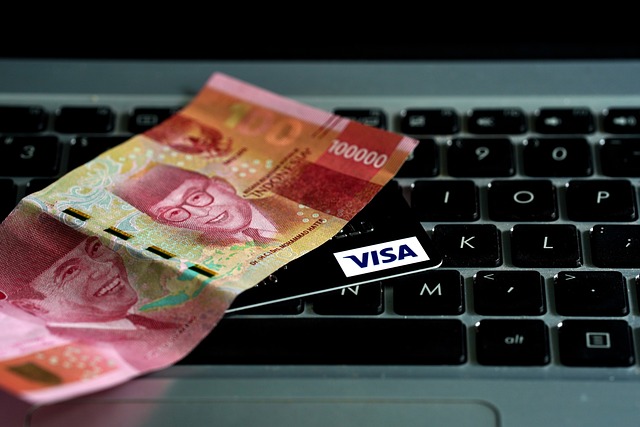How Some Sellers in Germany Source Goods at Lower Prices
In various cities across Germany, some find opportunities to purchase goods at lower prices from warehouses, overstock outlets, or liquidation centers. These items, often surplus or returned stock, can be resold online through e-commerce platforms, creating a potential path for business growth. While not all products are deeply discounted, those who understand market demand and logistics may benefit from this model. Success typically depends on research, pricing strategy, and shipping efficiency. Understanding how these supply sources work, what types of goods are available, and the challenges involved can help aspiring sellers make informed decisions.

Where to Find Warehouses With Discounted Goods in Germany
Germany offers numerous opportunities for sourcing discounted inventory through specialized channels. Major cities like Berlin, Hamburg, and Munich host regular liquidation auctions where retailers sell excess stock. Industrial areas in North Rhine-Westphalia, particularly around Düsseldorf and Cologne, feature multiple warehouse outlets specializing in overstock merchandise.
B-stock warehouses operate throughout the country, offering returned items from major retailers. These facilities often require business registration to access wholesale pricing. Additionally, trade fairs in Frankfurt and other commercial centers provide networking opportunities with liquidation companies and surplus dealers.
Online platforms like Restposten.de and Sonderposten.com connect sellers with warehouse operators. Many facilities operate on appointment-only basis, requiring advance scheduling and minimum purchase quantities. Regional differences exist, with southern Germany typically offering more electronics and automotive parts, while northern regions focus on textiles and consumer goods.
How Reselling Overstock Items Works in E-Commerce
Reselling overstock merchandise involves purchasing surplus inventory at reduced prices and listing items on established marketplaces. Amazon FBA, eBay, and regional platforms like Kaufland.de provide access to German consumers seeking discounted products.
The process begins with inventory assessment and market research. Successful resellers analyze product demand, competition levels, and potential profit margins before making purchases. Product condition varies significantly, ranging from new items in original packaging to customer returns requiring inspection or refurbishment.
Inventory management becomes crucial as storage costs and product degradation affect profitability. Many resellers utilize fulfillment centers to reduce handling time and shipping costs. Product photography and listing optimization directly impact sales velocity, while pricing strategies must account for marketplace fees, shipping expenses, and storage costs.
Quality control procedures help maintain seller ratings and reduce return rates. Some products may require basic repairs or repackaging before reaching sale-ready condition.
What to Consider Before Starting an Online Reselling Business
Legal requirements in Germany include business registration (Gewerbeanmeldung) and tax obligations. Resellers must comply with consumer protection laws, including mandatory return periods and warranty obligations. Product liability insurance becomes essential when selling electronics or items that could cause damage.
Financial planning should account for initial inventory investment, storage costs, and cash flow challenges. Many products sell slowly, requiring months of storage before generating revenue. Marketplace fees typically range from 10-15% of sale prices, while payment processing adds additional costs.
Market saturation affects profitability significantly. Popular categories like electronics face intense competition, while niche products may offer better margins but limited demand. Seasonal variations impact sales, with certain categories performing better during specific periods.
Technical skills for listing management, inventory tracking, and customer service become necessary as business volume increases. Many successful resellers invest in automation tools to streamline operations and reduce manual workload.
| Source Type | Provider Examples | Cost Range (EUR) |
|---|---|---|
| Liquidation Warehouses | Merkuria, Liquidation Express | 50-500 per pallet |
| B-Stock Platforms | B-Stock Solutions, Direct Liquidation | 100-2,000 minimum orders |
| Overstock Auctions | Auktionshallen Hamburg, Berlin Liquidators | 25-1,500 per lot |
| Online Marketplaces | Restposten.de, Großhandel.eu | 200-5,000 minimum purchase |
Prices, rates, or cost estimates mentioned in this article are based on the latest available information but may change over time. Independent research is advised before making financial decisions.
Competition analysis reveals pricing pressures in popular categories. Electronics typically offer 15-25% margins, while clothing and accessories may provide 30-50% returns. Seasonal items like holiday decorations or summer goods command premium pricing during peak periods but require careful timing.
Storage solutions range from home-based operations to commercial warehouses. Self-storage facilities cost approximately 50-150 EUR monthly for small units, while commercial space with loading docks ranges from 200-800 EUR monthly depending on location and size.
Success in overstock reselling requires patience, market knowledge, and efficient operations. While some sellers achieve significant profits, others struggle with inventory turnover and margin compression. Understanding local market preferences, maintaining quality standards, and developing reliable sourcing relationships typically determine long-term viability in this competitive sector.
The German e-commerce market continues growing, creating opportunities for skilled resellers who can navigate regulatory requirements while maintaining competitive pricing and service quality.




